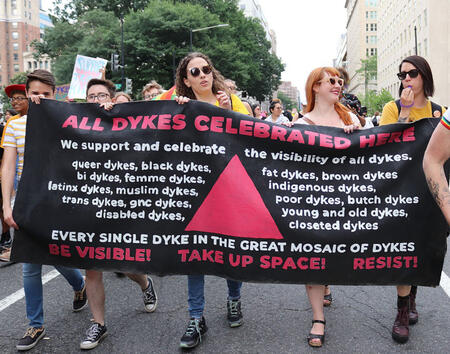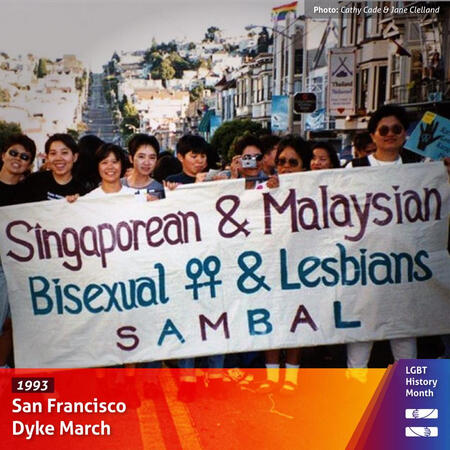Sapphic solidarity Carrd (by LILITHREIGNS)

In the dictionary it states that lesbian is a women who loves other women, however we know that this is not the entire definition. Lesbianism is fluid in terms of gender and some non-binary people may themselves may identify as lesbian.
While Bisexuality has been observed throughout history and has always existed, the actual term was not used frequently until the 1970s. The more frequent use is partially due the the exclusion of would-be bisexuals from the gay and lesbian communities caused by biphobia and political lesbianism (the belief that lesbian is a political identity, the majority of political lesbians were and are white cishet women, and despite the movement largely dying out, a lot of biphobia and transphobia in the lesbian community originates from that and the consequent belief that bi women were "sleeping with the enemy" which of course, they weren't) However due to the fact that the terms gay and lesbian existed before the term bisexual did, lesbians, bisexuals and pansexuals have a lot of shared history. Due to this, a lot of documents, referring to lesbians historically, or words that are defined as being or only mentioning lesbians, would have in fact included bisexual and pansexual women and some cases non-binary people too. This is due to bisexual and pansexual erasure, and as previously mentioned, and the fact that the lesbian label came before the labels bisexual and pansexual did.
The term “dyke” is a pejorative or a slur. In the dictionary, it is described as a slur against lesbians. However, with the knowledge that lesbians and m-spec women shared the same history and that the slur “dyke” came before the terms “bisexual” and “pansexual” did, the first usuage bof the word being noted in 1942. All lgbtq women were called dykes and still are today. Gnc people, lesbians, pansexuals, bisexuals, queer women are all affected by this word and have just as much a right to reclaim it as lesbians do if they wish to.
Lesbians, Bisexuals, Pansexuals, Omnisexual women have all marched along side each other in solidarity and celebration in dyke marches.
Despite slur discourse seeming irrelevant, the thought process is exclusionary. It paints sapphic nonlesbians as “not really gay/lgbtq” and erases the experience of people who aren’t lesbians and have had experices with being called a “dyke”.

Like the term “lesbian”, the terms “femme” and “butch”, were both conceived in the 1920s, before the terms “bisexual” and "pansexual" were . This means that historically, femme and butch were and are terms that refer to lesbians as well as bisexual and pansexual women, as all sapphic women were called lesbians back then. As well as this, the terms femme and butch have been used in other areas of lgbtq culture, such as in black and latinx ballroom culture, so it is not just a sapphic only term, as many lgbtq people may refer to themselves as butch queens and femme queens.
The double venus symbol, was popularised in the 1970s before the bisexual symbol, which was popularised in the 1990s. It is a sapphic symbol. Any sapphic in the community can use it. Although many sources still state it is a lesbian symbol, this can chalked up to be bisexual erasure in fact, many lgbtq organisations still say “Lesbian and Gay” despite the existance of bisexual and trans peopl people being apart of the lgbtq community. Lesbians, Bisexuals and Pansexuals have all loved, celebrated and marched together under the symbol. I like to think of it as a symbol of our unity! <3

I personally, as a nonbinary lesbian, have seen the dictionary defintion of many terms used in all types of lgbtq discourse. The dictionary definition of lesbian is a homosexual woman who likes other women. However, many non-binary people like myself who identify with the lesbian label, may find this definition to be exclusionary due to them not identifying to woman, with lesbian being the connection they have to womanhood. With this, we can see that under the lesbian label, there are many different types of lesbians, and naturally what being a lesbian is to them will differ from person to person.
It is important to stress that a label is how you see yourself and not other people, in my personal lesbianism, I am not attracted to men in any way, nor am I a man and that is how I personally define lesbian for myself. However to define this as the one true way to be a lesbian may alienate other people who may want to ID as such, just as how white cisgender lesbians have in the past excluded lesbians of colour and trans and non-binary lesbians. They did this due to them believing that their white cis experience with lesbianism is the only “true way” to be a lesbian, and thought that any different person identifying as a lesbian was "erasing their identity". They failed to see how other non white non cis lesbians could be lesbians alongside them, due to different experiences.
People identifying as bi/pan lesbian can include but aren’t limited to : people who are exploring labels, people who want to emphasise their attraction to women, people with DID whose alters may experience different sexual attractions, and may want a way to define their system. Once again it is important to state that this doesn't mean you have to experience the same type of attraction of them to be a lesbian, as your definition of the label is personal to you as is their definition is to them.
A popular argument going around is that bi and pan lesbians make men think they can date lesbians who are not into men, however this would be the fault of the men, not the bi/pan lesbians. This is similar to the nepronouns debate where people believed that neopronouns made cis people not take trans community seriously. However that is the fault of transphobes, not neopronoun users. Men who disrespect lesbians boundaries are lesbophobic, homophobic and misogynistic. This is not the fault of bi and pan lesbians. There are also numerous other arguments certain kinds of men use towards lesbians, like “how do you know if you haven’t tried it'' or “you just didn’t know me.” It seems unlikely that erasing the identity of bi/pan lesbians would fix the situation of men hitting on women who aren’t interested in them.
At the end of the day, labels are what you define yourself as, not how you define other people. Many people may have different views as to what makes up a label and that is ok, because that is what they think about themselves and hence identify with that label.
Lesbians and bisexual/pansexuals share a deep rich beautiful history together. Many of us have identified as bi or lesbian and vice versa at some point in time. Our communities are intrinsically intertwined and that is something beautiful that should be celebrated.